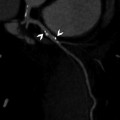
What an exciting time! You want to potentially pursue an online master of science in nursing? That’s an excellent idea, especially since you already have your BA in it and you know that it’s something that you’re actually interested in. A master of science is no joke, though; it takes a lot of work and a lot of organization, especially if you’re thinking about doing it online, as it comes with many steps.
There are certain things that you can expect before going in, such as first researching what exactly the degree involves, how to make the most of the online setup, finding the right program and institution for you and the list goes on. If this sounds like something interesting to you, then keep reading.
Understanding What the Degree Involves
An MSN program goes far beyond the basics you learned in your undergraduate nursing studies. You’ll explore advanced topics like healthcare policy, evidence-based practice, pharmacology and leadership strategies. The courses often require you to think critically, conduct research and apply theory to real-world scenarios.
Even though the learning is online, you should still expect:
- Big assignments with tight deadlines
- Virtual discussions where you’re expected to contribute regularly
- Research projects that may involve data analysis or case studies
- Clinical components or practicum hours, depending on your specialization
Finding the Right Online Program for You
Now that you know what the course involves, you need to make sure you find the right program for you. An online FNP program that includes some of the bullet points mentioned below, such as accreditation, specialization and clinical placement, is a very good start.
Here are some things to consider when researching programs:
- Specialization Options: Decide whether you want to focus on areas like nurse practitioner, education, leadership or informatics and confirm the program offers your desired track.
- Clinical Placement Support: Some programs help arrange your clinical hours, while others expect you to find placements yourself.
- Accreditation: Make sure the place you choose is one that has been vetted by an authority.
- Faculty Support: Look for programs where instructors are accessible and willing to mentor students.
- Flexibility: Check whether the program allows part-time study or requires a full-time commitment.
A program that aligns with your career goals and lifestyle will make the entire experience more manageable and rewarding.
Balancing Flexibility and Responsibility
One of the best things about an online MSN is the flexibility it offers. You can complete coursework around your work schedule and personal commitments. However, this flexibility means you’re fully responsible for staying organized and keeping things on track. There won’t be in-person classes to remind you when things are due.
Staying disciplined is key. Set aside dedicated study times each week, use digital calendars to track deadlines and don’t let assignments pile up. Try to get as much as you can done in the moment it’s issued. Don’t waste your time procrastinating.
What the Coursework Feels Like
The online format typically combines recorded lectures, reading assignments, interactive discussions and exams. Some classes may include group projects where you collaborate virtually with classmates. While this might feel different at first, it helps you develop teamwork and communication skills in a digital setting, something increasingly valuable in today’s healthcare environment.
Making Clinical and Practicum Hours Work
Many MSN tracks require clinical hours or a practicum component, even in an online program. These hours give you hands-on experience in your chosen specialty. You’ll likely complete them at an approved healthcare facility near you, under the supervision of a qualified preceptor.
To make this part run smoothly:
- Coordinate with your program early about clinical site requirements
- Build a relationship with your preceptor for guidance and support
- Keep detailed records of your hours and experiences
- Balance your schedule so clinical days don’t clash with heavy assignment deadlines
Managing the Workload Without Burning Out
The workload in an MSN program is heavy but there are ways to handle it without feeling overwhelmed.
You should break down big assignments into smaller, manageable tasks. Also, take short breaks during long study sessions to stay fresh, so that you don’t feel too tired. Plan ahead. If you know your schedule is about to get very busy with many assignments or essay deadlines, then try to think of how you can lighten other loads that you have in your life. Keep a healthy routine with exercise, sleep and meals to maintain your energy.
Looking Beyond Graduation
Completing an online MSN is not just about earning a degree; it’s about preparing for your future role. After graduation, you may need to pass certification exams depending on your specialty. For example, nurse practitioners must pass a board exam before they can practice.
Your MSN can open doors to:
- Advanced clinical roles, such as nurse practitioner or clinical nurse specialist
- Leadership and management positions in healthcare settings
- Opportunities in education, research, or policy development
Remember that you need to earn your nursing license if you want to practice and these vary from state to state, so depending on where you want to work, you’ll have to look into different licensing procedures.
It’s a Worthwhile Cause
Yes, an online Master of Science in Nursing is challenging but it’s also one of the most rewarding steps you can take in your nursing career, so why not give it all you’ve got?
Stay updated, free articles. Join our Telegram channel

Full access? Get Clinical Tree







